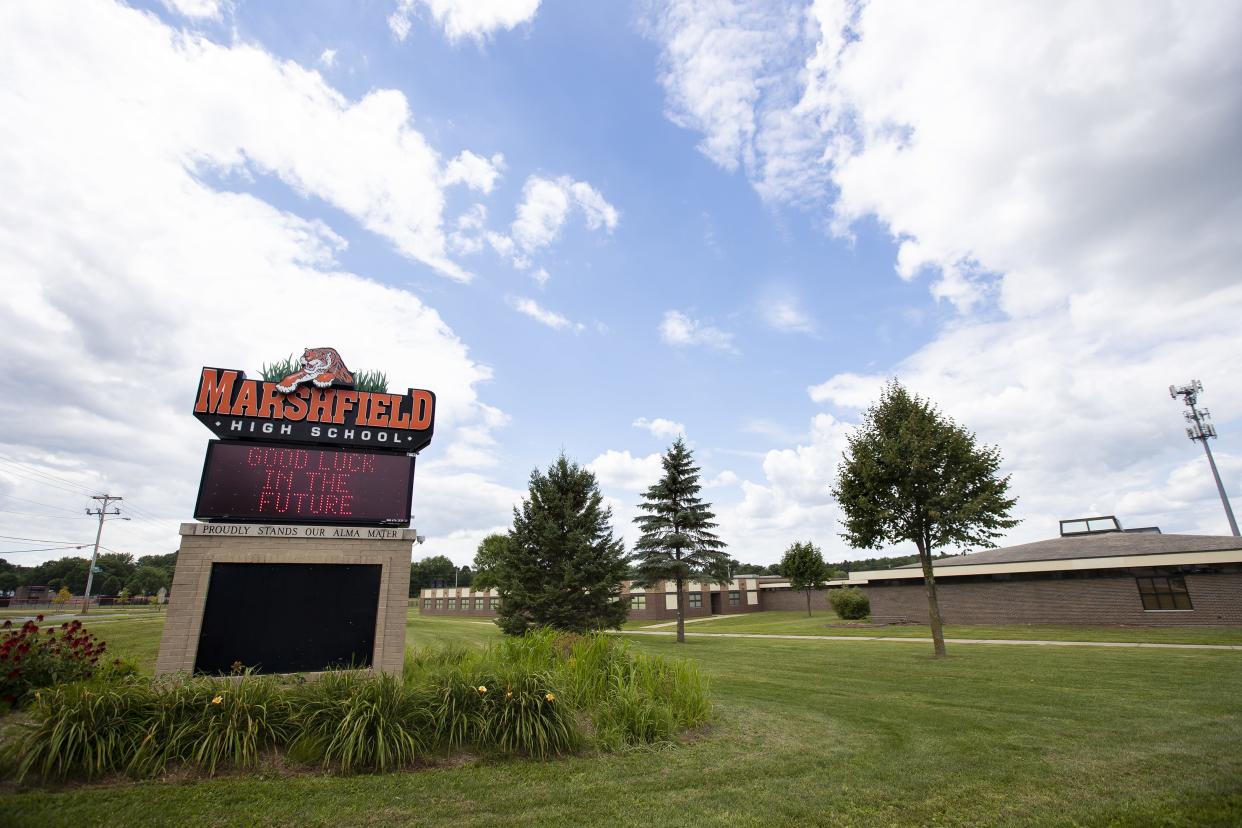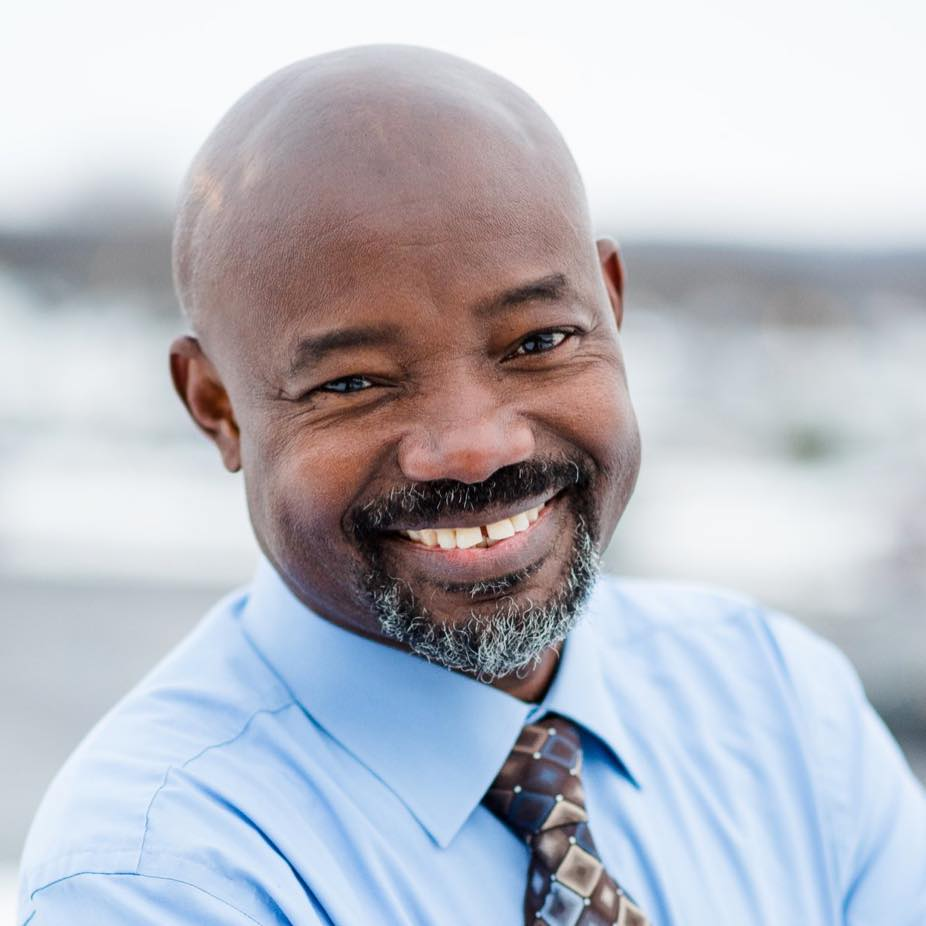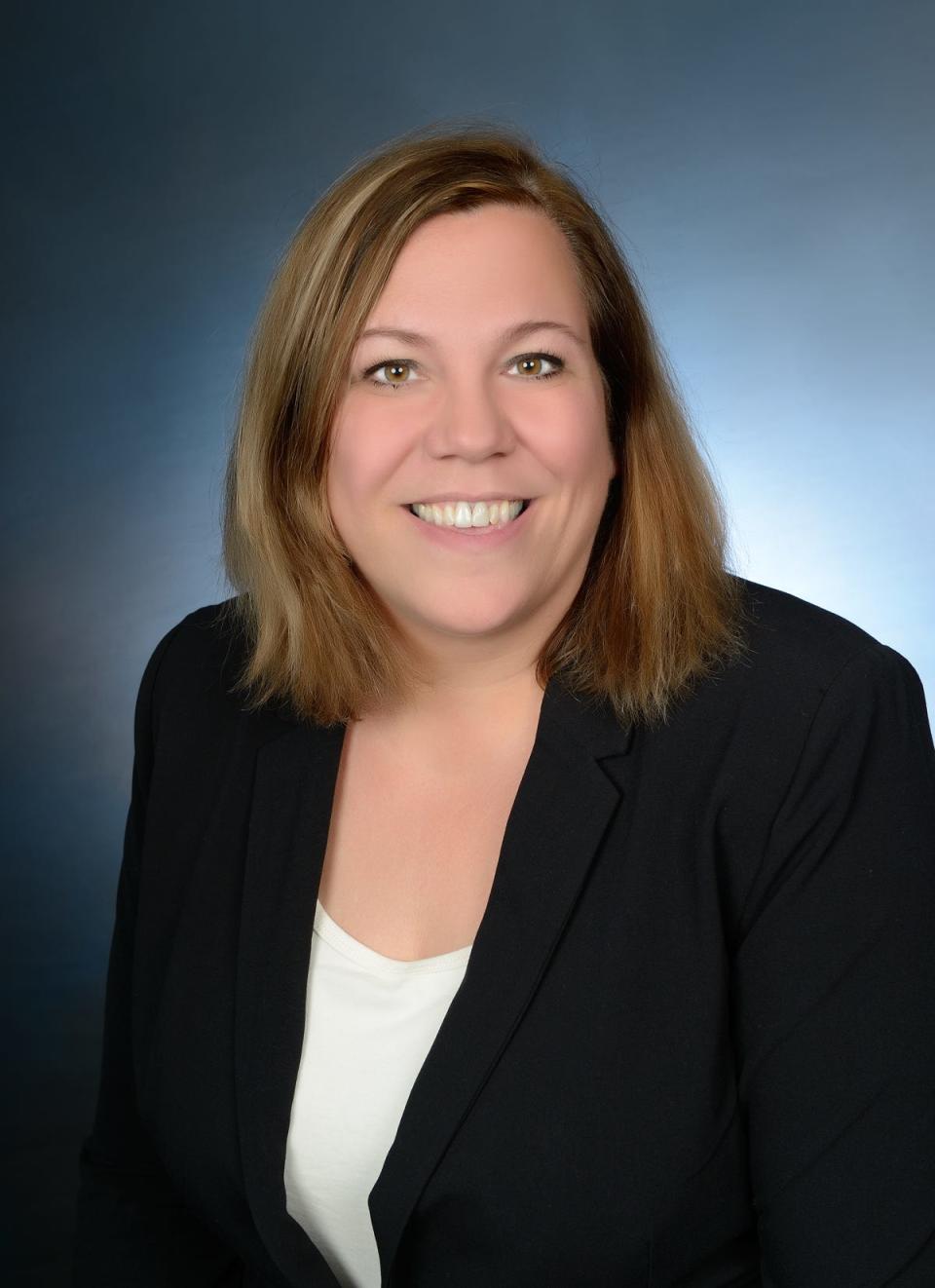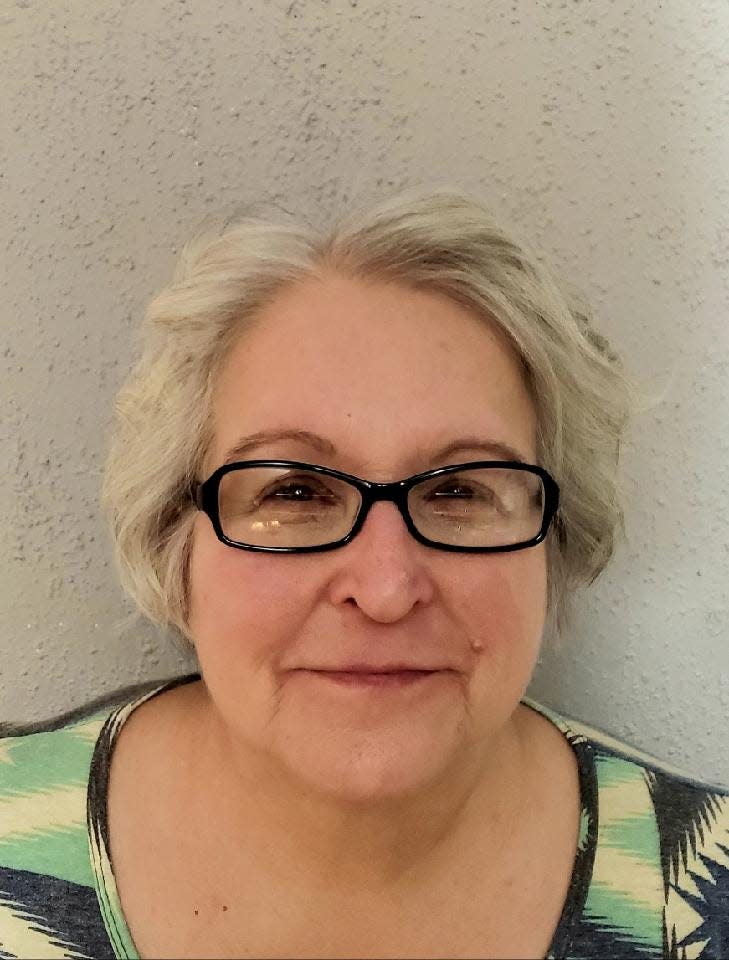Marshfield School Board candidates talk priorities, COVID-19 safety protocols ahead of Feb. 15 primary election

MARSHFIELD – Five candidates will appear on the Feb. 15 primary ballot for Marshfield School Board.
Incumbent Dale Yakaites, along with fellow candidates Iddi Adam, Alanna Feddick-Goodwin, Cathy Gorst and Rebecca Oliver will vie for two open spots on the school board. Four will move on to the April 5 spring election. For information on voter registration and polling locations, people can visit MyVote Wisconsin's website.
The Marshfield News-Herald asked the candidates questions about their priorities and their positions on COVID-19 safety protocols in schools. Here's what they said.
Editor's note: Candidate answers have been edited for length and clarity.
Iddi Adam
Age: 54
Occupation and education: Works at Marshfield Clinic Research Institute doing oncology research; bachelor's degree in geography and resource development, master's degree in environmental science and doctorate in geography

Relevant experience: He and his wife have six children, two of which are students in the Marshfield School District. He previously had a career in education, which includes serving as an associate professor and the associate dean at the University of Wisconsin-Stevens Point at Marshfield, as well as the associate dean for Northcentral Technical College in Wausau.
Alanna Feddick-Goodwin
Age: 49
Occupation and education: Attorney at Feddick-Goodwin Law Office in Marshfield, which has operated in the area since 2003

Relevant experience: She is the mother of a Marshfield Middle School student. She served on the Marshfield City Council from 2004-17 and has participated in the Marshfield Young Professionals and Leadership Marshfield project.
Cathy Gorst
Occupation and education: An attorney at Gorst Law Firm in Marshfield; undergraduate degree in medical records administration from Viterbo College in La Crosse and a juris doctorate from the University of Wisconsin Law School.
Rebecca Oliver
Age: 63
Occupation and education: Works part time at Rogan's Shoes in Marshfield; high school graduate and took a few psychology classes in college

Relevant experience: She has experience as a school board chairperson and as a substitute teacher. Several of her grandchildren are students in the Marshfield School District.
Dale Yakaites
Age: 72
Occupation and education: Retired educator; bachelor's degree in English from UW-Oshkosh
Relevant experience: He has served on the school board since 2016.
Why are you running for Marshfield School Board?
Adam: I have been a resident of Marshfield since August 2003. My wife and I have six children. Four are grown and out of the K-12 system. Our two youngest are in elementary school.
I have been in education most of my life. I believe that as a parent and an educator, my voice would be a welcome addition to the board. I bring the perspective of a parent who has lived on three continents, with a vast wealth of experience in education. I know the value of education, and I know what it takes to create conditions for good education to flourish. Having been a department chair, associate dean and dean, I have experience in management. I have made tough decisions and understand the behind-the-scenes discussions that take place before difficult decisions are made.
Additionally, in this era of political polarization, it is important to take a step back and talk to everyone. I think regardless of individual perspectives, we all share the same goal: helping all kids find success within our school district. I am running for school board because I can and will maintain focus on our students’ growth and success.
Feddick-Goodwin: My focus is to return to the fundamentals of educating our children, empowering parents, ensuring student success, supporting teachers and staff, and promoting financial accountability.
Gorst: I have heard parents before, during and after the pandemic raise concerns regarding the accessibility, for themselves and their children, to the facilities and staff in our school district; regarding a lack of fiscal transparency, foresight and accountability; regarding the physical and mental health and safety of their children in the schools in our district; regarding the lack of accountability of staff for their behaviors and poor teaching skills; regarding the educational lag their children are experiencing and the failure to provide their children with the educational tools to develop good critical thinking skills and the skills needed for them to compete in a global environment.
Oliver: I believe more people need to be involved in our community governments.
Yakaites: I have served the district since 1972 as a junior high and high school teacher, a coach, journalism adviser, district co-technology department director, district publications/public relations director, adviser for several Marshfield School District superintendents, the key leader in several referenda, including the one that built Madison and Washington schools and made improvements to our other schools.
And last but not least, I have served two three-year terms as a board member. In short, I have the experience needed.
What are the top two issues the school district should address?
Adam: We need to begin to rebuild trust — trust between parents and the school board, trust between administration and staff, and trust between the district and the community. I know that we all want the best for our district and our students. Of that I have no doubt. But what we differ in, in my opinion, is how to get there.
Very often, motives are questioned and a lot of second guessing is done. This is partly the result of an information vacuum. In the absence of information, suspicion grows that leads to an erosion of trust. One of the things I would like us to focus on is trust building measures, including information sessions, where the district’s board provides venues, both formal and informal, for constituents to come and listen, share ideas and information, and be brought up to speed on initiatives being pursued or contemplated.
The second issue we need to tackle is addressing the workforce shortage in our district. Some of this is a result of the current COVID-19 surge that is sidelining some teachers and staff through quarantining. But even before the pandemic, there was a steady increase in resignations in the ranks of our teachers and staff.
To stem this tide, we need to create an environment where our professional staff feel valued, appreciated and heard. We do not necessarily have to provide more compensation (although that can certainly help).
What we need to do is foster an atmosphere of respect, dignity and appreciation. We also need to work on providing our staff avenues for upwards mobility. Teachers and staff make our programs work. They directly support the students, so a revolving door ultimately hurts students even with the best programs, facilities and curriculum in place. We need staff to feel appreciated and respected, so that it is easy for them to build welcoming, engaging and joyful learning experiences.
Feddick-Goodwin: I believe we need to instruct our children not just what to think, but how to think.
All children should be protected, encouraged and engaged in education, and should learn in the way each child learns best. Our children's grades, achievements and character development matters.
Gorst: Until I am elected to serve and would have better access to the appropriate data, it would be difficult to identify the top two issues.
Oliver: I will work to keep critical race theories out of our schools. I believe racism is wrong in any form.
I also believe in a common sense approach to what we require of the children. I do not believe mandatory vaccines are appropriate, it needs to be voluntary and up to the parents to decide.
Yakaites: My number one response to this is always the same, and will continue to be so: To keep our schools safe and to provide a quality education for all students. Continuing issues include recruiting and retaining excellent staff, as well as balancing the budget every year.
What is your position on COVID-19 safety protocols in schools?
Adam: I am a strong believer in data-driven decision making. We need to make decisions that consider the best available science. Science, by its very nature, does not provide definite answers for all eternity. What it does do, is provide answers that are relevant for today. The answers can change when additional evidence is uncovered.
The best available evidence today points to the fact that masks save lives — not only for the wearer but for those the wearer comes into contact with. The current omicron variant will not be the last mutation of the virus. We are likely to see other strains emerge. We need to be protecting one another as we weather this storm.
Along with masking is the issue of vaccines. I strongly urge individuals and families to get vaccinated and boosted to protect themselves and the community. If we are to get out of this pandemic, we all need to row in the same direction. We all need to do our part in combating the disease. That means vaccines, masking, social distancing and frequent washing of hands.
As the science evolves, so should our stance on all of this. Current guidance after contracting COVID-19 is five days quarantine and another five days of wearing a properly-fitting mask. I encourage everyone to follow these guidelines to save lives. We need to apply the best scientifically supported COVID-19 protocols to keep as many students and staff safely learning in school as possible. These protocols need to be consistently evaluated based on the new scientific data and recommendations available.
Feddick-Goodwin: I believe masks should be optional based upon the desires of the parent(s) of each child.
Gorst: Since I am running for a position on the school board in the Marshfield School District, the focus in my response is related to protocols here. The physical environment protocols related to cleaning and ventilation make sense. Physical distancing and quarantine requirements for healthy children do not.
I do not support a masking mandate. I believe that whether a child should wear a mask is a parental decision that should be made based on the needs of their child after they have the opportunity to weigh the benefits and detriments to their child and evaluate the current environmental issues.
Oliver: I do believe safety protocols need to be in place when there are so many people in one place. Common sense is needed here as well. Some cause children more harm than good. Each protocol needs to be evaluated for the potential damage it could possibly cause.
I believe masks can be helpful in some cases such as when a child has a lingering cough, it will keep spit from flying. I don't believe it is necessary for everyone. If children are sick, even mildly, they need to stay home.
Yakaites: I voted for the masking policy and continue to support it because masking allows the district to keep kids in school and avoids large-scale class cancellations or school closures.
As we face another COVID surge, how should the school district balance providing a good education with the safety of students and staff?
Adam: The current guidance favors in-person learning. I am in favor of that. That means we need to develop safety protocols that provide a safe environment for our students, teachers and staff to learn and work. That includes masking. That includes vaccines and boosters. That includes frequent testing and quarantining, if needed.
I am not opposed to providing some students who have immune-compromised conditions with virtual learning options until it is safe for them to return to the classroom.
We know that virtual learning can work. But it does have its drawbacks. These include social isolation for students, some of whom need the in-person interactions to thrive. Isolation can also bring about mental health issues. We should be doing all we can to use virtual learning only as a last resort. However, to continue to have in-person learning, let us follow the science and do all the preventative measures we know work to ensure the safety of our students, staff and the community.
In all we do though, we need to consult our constituent groups, including parents, the community, students, teachers and staff. Without adequate consultation and input from our constituents, any measures we take would eventually be doomed to fail. Taking the time to do the leg work up front by explaining the science and reasoning behind decisions would, in my opinion, lead to greater buy-in and ultimately success of mitigation measures we put in place.
Feddick-Goodwin: I believe virtual learning is an option, but the lack of in-person availability has stunted our children’s education and learning and has stunted our children’s mental health.
I did well in virtual learning as a child. My child, for instance, does not. Each child has learning styles, methods and needs, and while it is an option, I do not believe a good education can be had without the option of in-person learning.
Further, the current variant (and I expect future variants based upon viral replication) is highly contagious (even with a vaccine) but has milder symptoms and lower mortality. With the options for treatment and natural immunity, at this point, the benefits do not outweigh the risks.
Gorst: Schools need to be kept open. The current model for virtual learning in the Marshfield School District does not adequately address the learning needs of students and, at this point, should only be used sparingly with individual children and then only after consultation with a child’s parent.
Oliver: When the numbers of sick reach high numbers I would agree to virtual learning, but only for limited time no longer than two weeks so that children don't get too isolated from friends. Teachers need a break from virtual too. Unless they are trained in it, it is difficult.
Yakaites: Obviously, balancing the safety protocols needed to run school every day is a big challenge, and I applaud our teaching staff and all personnel in the district for working hard to provide a quality education for our kids. I am not in favor of returning to virtual school providing there is not a catastrophic COVID outbreak (or other major issue) forcing schools to be closed for lengthy periods time.
Contact USA TODAY NETWORK-Wisconsin reporter Melissa Siegler at msiegler@gannett.com. Follow her on Twitter at @Marie2Melissa.
This article originally appeared on Marshfield News-Herald: Marshfield School Board candidates talk priorities, COVID-19 protocols

